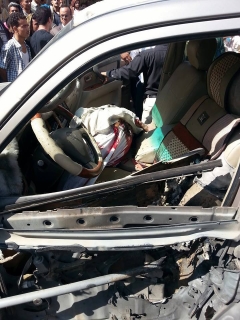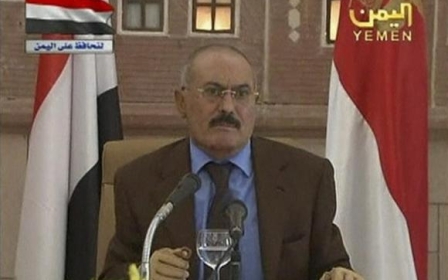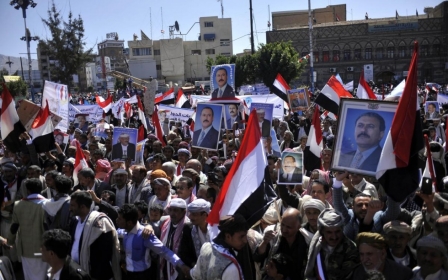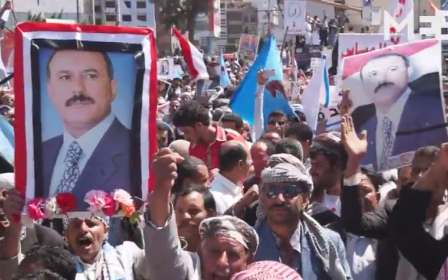Yemen's Houthis condemn killing of top Islah politician in Taiz province
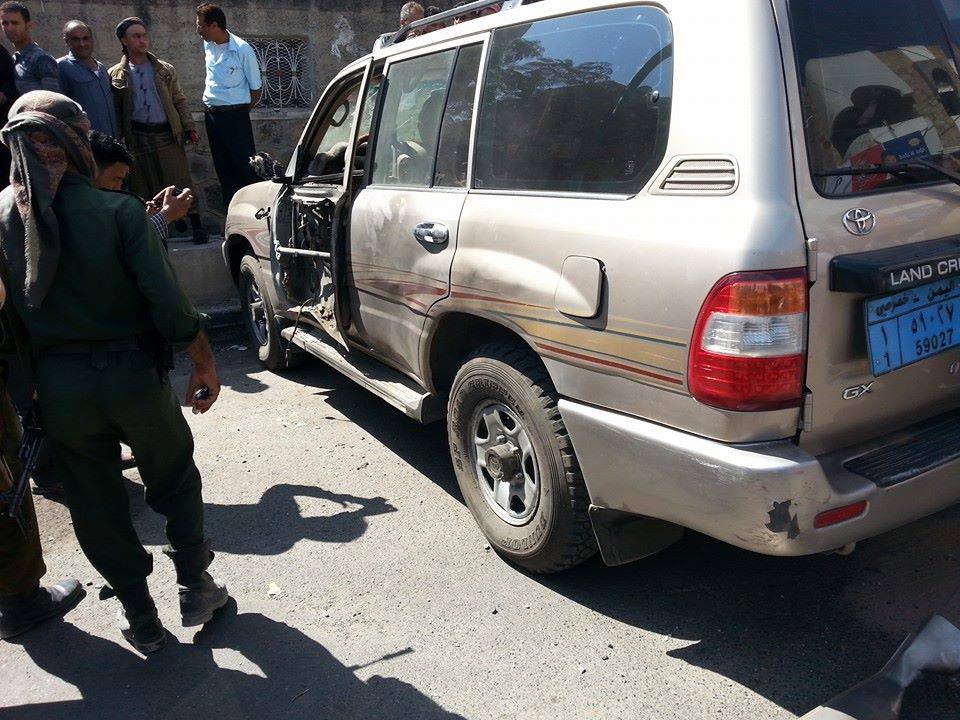
Yemen’s Shiite Houthi group on Wednesday denounced Tuesday’s assassination of a senior Islamist politician, describing his killing as a “criminal act.”
Sadeq Mansour, deputy secretary-general of the Islamist Congregation for Reform – also known as the Islah Party, was killed on Tuesday when his car struck a roadside bomb in Yemen’s central Taiz province.
“We denounce this heinous crime and we offer our condolences to the family of the deceased,” read a statement by the Houthis. “This cowardly act of terror comes as [part of] a systematic plan to derail the progress of the political process.”
No one has claimed responsibility for the attack, although police have detained and are questioning several suspects.
Islah is a Sunni political party with close links to the Muslim Brotherhood. It won the second largest number of seats in the 2003 parliamentary elections, coming second to ousted leader Ali Abdullah Saleh’s General People’s Congress.
The Houthi statement also called on Yemen’s political parties to end “political differences that are used by some foreign powers as a cover to commit crimes against the Yemeni people.”
The group did not name the foreign powers accused of acting against Yemenis.
Islah supporters have been resisting an advance by the Shiite Houthis, who easily overran the capital Sana’a on 21 September and who have since been expanding farther south. Earlier in November Houthi militiamen attacked Islah’s headquarters in the south-west city of Ibb, killing three people.
The Houthis did not enter mainly Sunni Taiz, site of Tuesday’s bombing, after a deal was struck between the provincial authorities and a representative of the Shiite militia to avoid fighting.
The murder of Islah’s Mansour comes just over two weeks after another politician, Mohammed Abdulmalik al-Mutawakil of the Union of Popular Forces, was gunned down in Sana’a.
Yemen has been dogged by instability since an Arab Spring-inspired uprising forced former leader Ali Abdullah Saleh from power in February 2012, although a Gulf Cooperation Council (GCC) brokered deal allowed him to remain in the country.
Saleh has re-emerged as a key political player in Yemen too, with reports suggesting he has backed the Houthi takeover and rallies in the capital Sana’a have shown significant support for the former leader, who has also been hit by UN sanctions.
New MEE newsletter: Jerusalem Dispatch
Sign up to get the latest insights and analysis on Israel-Palestine, alongside Turkey Unpacked and other MEE newsletters
Middle East Eye delivers independent and unrivalled coverage and analysis of the Middle East, North Africa and beyond. To learn more about republishing this content and the associated fees, please fill out this form. More about MEE can be found here.


